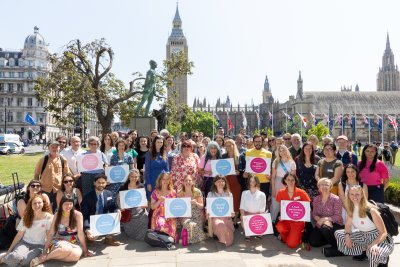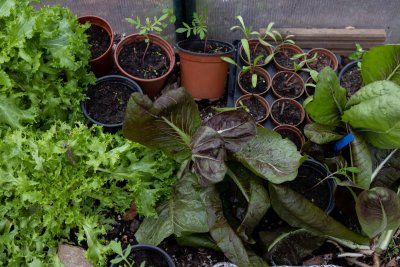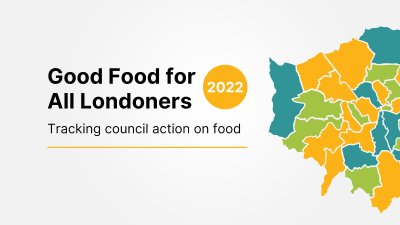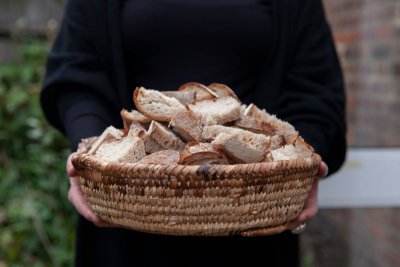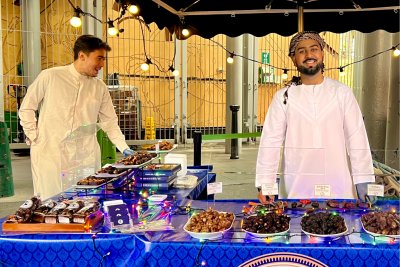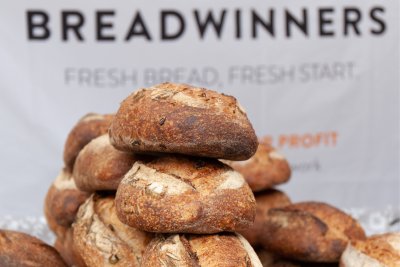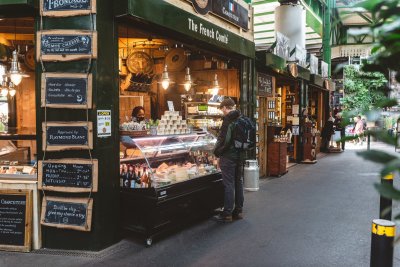Our undercover survey reveals the UK's best and worst fishy lunchtime choices. Highlights include:
- The majority of sandwich shops surveyed provide no information about the source, or catch method used for the fish they are serving.
- Asked where the fish came from, staff responses included: “from Euston”; “from a factory”; “from France - it comes in a vacuum pack and we mix it with mayonnaise”; and “it comes from a packet”, accompanied by a mime of how big the packet was.
- Best performer…Pret a Manger, which has prominent, and often built-in-to-the-name, information about the source and method of production of the fish on every sandwich shelf label.
- Worst offenders…almost all the rest! Apostrophe, Burger King, Boots, Camden Food Company, Greggs, Paul, Subway, Tesco, Upper Crust, WH Smith.
- Surprise survey result…McDonald's! While it provides no details in store of the source of the fish, its Filet-o-Fish sandwich is made from Marine Stewardship Council-certified Alaskan Hoki or Pollack, which is good for the sustainability of fish stocks.
Over half a million people have signed up to chef Hugh Fearnley-Whittingstall's Fish Fight campaign, so many of us are probably changing our fish buying habits. But a secret shopper survey (results below) by ethical food magazine The Jellied Eel, has revealed that even grabbing a humble lunchtime sandwich is an ethical minefield.
An estimated 17,400 tonnes of fish - mostly tuna and prawns – is eaten each year in sandwiches . Yet our survey showed that most of our favourite lunchtime haunts provide us with no information about the source or catch method of the fish they are serving, and one of the shops we surveyed didn't even say what species it was using. Even those shops that do provide some labelling tend to limit them to a 'dolphin friendly' claim on tuna products. That might be good news for dolphins, but the tuna may still be from overexploited stocks or been caught using methods that damage the marine environment. In fact, some of our favourite fish fillings are on the Marine Conservation Society's 'fish to avoid' red list - which highlights fish from unsustainable, overfished, vulnerable and/or badly managed fisheries.
But it's not all bad news. A handful of companies are selling sustainable fish and telling customers about it. Pret a Manger clearly takes the issue seriously and is helping consumers by using prominent, and often built-in-to-the-name, information about the source and method of production of the fish on every sandwich shelf label. The Co-operative, Marks & Spencer and Sainsbury's were also good performers. The McDonald's approach was also notable – details on its Filet-o-Fish were lacking in store, but the source and sustainability certification details are clearly displayed on the website.
“Most of us stop off for a sandwich at some point during the week, and some of us do so every day,” said Kath Dalmeny, of Sustain, who coordinates the Sustainable Fish City campaign . “Our lunchtime choices could mean the difference between some fish species continuing to provide us with abundant food, or those fish species disappearing completely.” The Sustainable Fish City campaign is asking businesses to specify sustainable fish in their contracts and menus and to promote sustainable fish to their customers. People can get involved by telling restaurants, sandwich shops and other food businesses about the campaign and suggest they join in.
ENDS
Contact Kelly Parsons Kelly@sustainweb.org or Ben Reynolds ben@sustainweb.org for more information on 0203 5596 777 or 07779 625 949.
The results:
The survey, carried out between the 7 and 14 January visited 18 of the high streets leading retailers around London that sell sandwiches. Our surveyors could find no obvious details from either packaging, shelf, leaflets, staff or the company website for Apostrophe, Boots, Greggs, Paul, Subway, or Tesco. A Tesco manager did inform us, when asked about the fish sustainability, that the sandwich in question should not be left out of the fridge for more than two hours! Our surveyors received other very disappointing answers from shop staff (often the manager) to the question, “Could you tell me where the fish comes from and how it was caught?” Staff said:
- In the coffee shop Starbucks: “It comes from a factory”
- In the railway station sandwich outlet Upper Crust (run by SSP): “It comes in a tin”
- In the railway station sandwich outlet Camden Food Co (run by SSP): “It comes from Euston”
- In the upmarket boulangerie Paul: “From France - it comes in a vacuum pack and we mix it with mayonnaise”
- In the high street pharmacy Boots: “The sandwiches just come here and we put them on the shelves”
- In the high street sandwich shop Subway: “It comes from a packet. The packet's from the Netherlands”
For full table of results, please see the Jellied Eel article: https://www.sustainweb.org/jelliedeel/articles/137/
Notes to editors
- The Jellied Eel is a quarterly London magazine about ethical eating. It is produced by BIG Media and London Food Link, part of the charity Sustain: The alliance for better food and farming. The free magazine is available at over 100 outlets throughout London. The fish sandwich survey was produced in conjunction with issue 30, released at the end of January 2011. http://www.thejelliedeel.org/
- According to the British Sandwich Association around 15 per cent of the over three billion sandwiches bought every year are fish.
- Atlantic, wild caught salmon, and South Atlantic, Indian, Atlantic and Central West Pacific tuna are all on the “fish to avoid” list. Tiger and king prawns, both wild caught and non-certified farmed, are also currently “red listed”, due to prawn farming's high environmental cost. Loss of wetland and mangroves, degradation of habitats, pollution and depletion of wild fish stocks, means the Environmental Justice Foundation advises we only buy prawns with recognised, credible, environmental, fair trade and organic labels.
www.fishonline.org/ - Sustainable Fish City is run by a group of not-for-profit organisations working on sustainable seafood issues. The group includes: Good Catch; Seafood Choices Alliance; Marine Conservation Society; Marine Stewardship Council; Pisces Responsible Fish Restaurants; Environmental Justice Foundation and Sustain: The alliance for better food and farming (which coordinates the campaign).
www.sustainweb.org/sustainablefishcity/about/
London Food Link: London Food Link brings together community food enterprises and projects that are working to make good food accessible to everyone in London to help create a healthy, sustainable and ethical food system for all.

